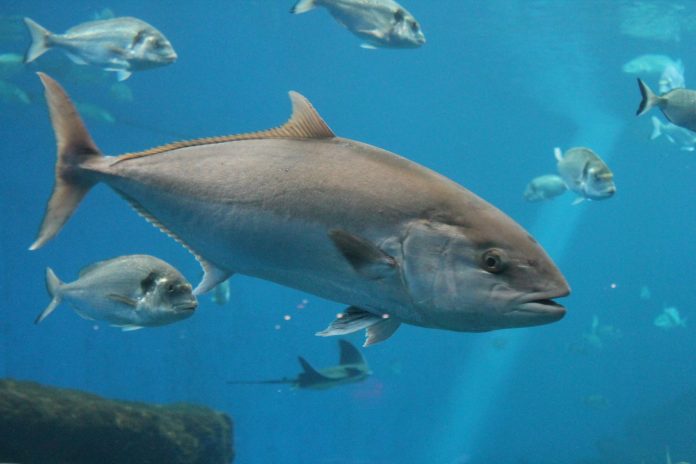Up until recent Brexit negotiations, discussion over exploited fish stocks has always been national: Where is the international policy agreement?
Currently, COVID-19 does not affect fish. However, the pandemic has created a diminished supply chain for global fisheries, as workers and trade are limited by the regulations brought into place by various Government bodies to protect them against infection. According to the FAO, global fish production is estimated to have reached 179 million tonnes in 2018, with a total sale value that is roughly 401 billion USD. Around 156 million tonnes were used for human consumption.
In particular, developing countries depend on the intake of fish to sustain accessible nutrition, providing crucial protein and omega 3.
Some currently depleted fish varieties are:
- Atlantic cod
- Haddock
- Atlantic Cod
- Atlantic salmon
- Haddock
- Other cods, hakes, and haddocks
- Salmons, trouts, smelts, etc.
- Whiting
However, fisheries subsidies continue to create the situation of exploited fish stocks, with nearly 85% of the subsidies benefitting only large fleets that belong to big businesses. More local fishing systems make up 90% of all fishermen globally, signalling a significant financial imbalance. Ironically, Sustainable Development Goal 14, calls on all countries to: “prohibit certain forms of fisheries subsidies which contribute to overcapacity and overfishing; eliminate subsidies that contribute to illegal, unreported and unregulated fishing; and refrain from introducing new such subsidies” by 2020.
Fish do not recognise borders
Marine fish species are migratory in nature and not respectful of human-made territorial boundaries, which represents a challenge for fisheries management as policies tend to focus at the national level. With an average catch of 48 million tonnes per year, and USD $77 billion in annual fishing revenue, these species support critical fisheries, and require international cooperation to manage, according to research by the University of British Colombia.
The researchers focused on fish species that cross the Exclusive Economic Zones (EEZs) of two or more coastal states which are most often targeted by fisheries operating within those EEZs. They identified over 633 exploited transboundary species worldwide and found that the catch and revenue from these fisheries had been severely underestimated and over-exploited.
“We found that some countries get over 80 per cent of their catch from transboundary species. These are not small numbers or small nations: these catches are specifically important in terms of revenue for Northern America and Eastern Asia,” said Juliano Palacios Abrantes, a doctoral student in UBC’s Institute for the Oceans and Fisheries, and lead author on the study.
“Fishing nations such as China, the USA, Russia, Peru, and Japan alone are responsible for 41 per cent of the yearly global fisheries revenue from transboundary species.”
“Fisheries that include transboundary fish species, such as anchoveta in Peru’s transboundary area with Chile or pollock in the U.S., Russia and Japan transboundary Alaskan region, catch on average 48 million tonnes per year, or USD $77 billion in annual fishing revenue,” said William Cheung, senior author and professor in in UBC’s Institute for the Oceans and Fisheries. “The catch from these fish species are declining at a much higher rate than non-transboundary species.”
Peru and Chile created a precedential agreement
There are agreements between countries in many of these EEZs. Peru and Chile recently signed an agreement towards standardising stock assessments and management of the southern anchoveta stock. However, transboundary fisheries have led to some notorious fisheries-related conflicts, including those between those Canada, the USA, Russia, and the European Union. The EU, Norway, Iceland, and Denmark’s Faroe Islands continue to be at odds over the allowable catch sizes for Atlantic mackerel, a transboundary fish species that has changed its distribution patterns due to climate change.
“Climate change is going to continue changing the distribution of fish stocks among countries, with some new transboundary species emerging and some disappearing,” said Palacios Abrantes.
“This can only lead to more difficulties if nations are not able to adapt and manage fisheries through effective international cooperation.”
“Collaborations are going to be needed to maximize long-term ecological, social, and economic benefits of shared marine species, particularly as stocks decline due to overfishing, and as fish populations move about the ocean in different patterns due to climate change,” said Cheung.
“Nations will have to adapt to these anthropogenic changes in our world as quickly, if not quicker, than fish species are having to do.”











